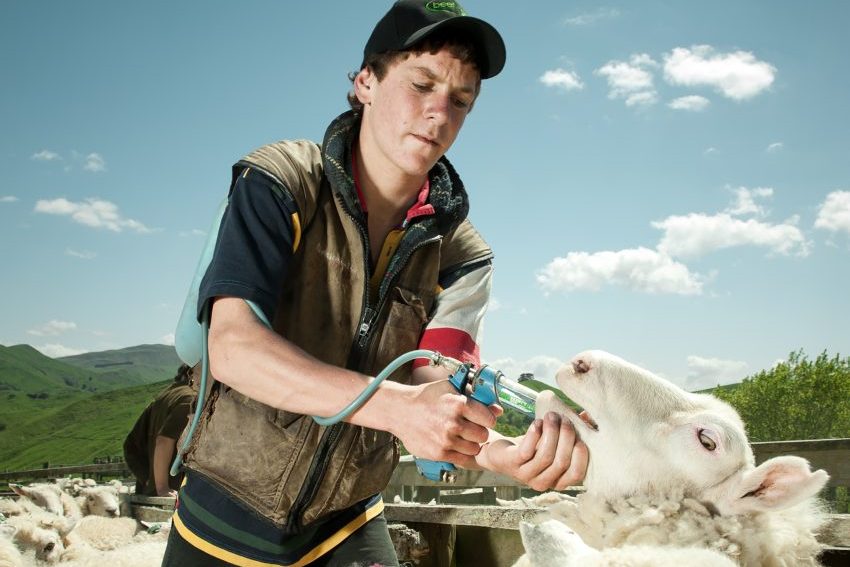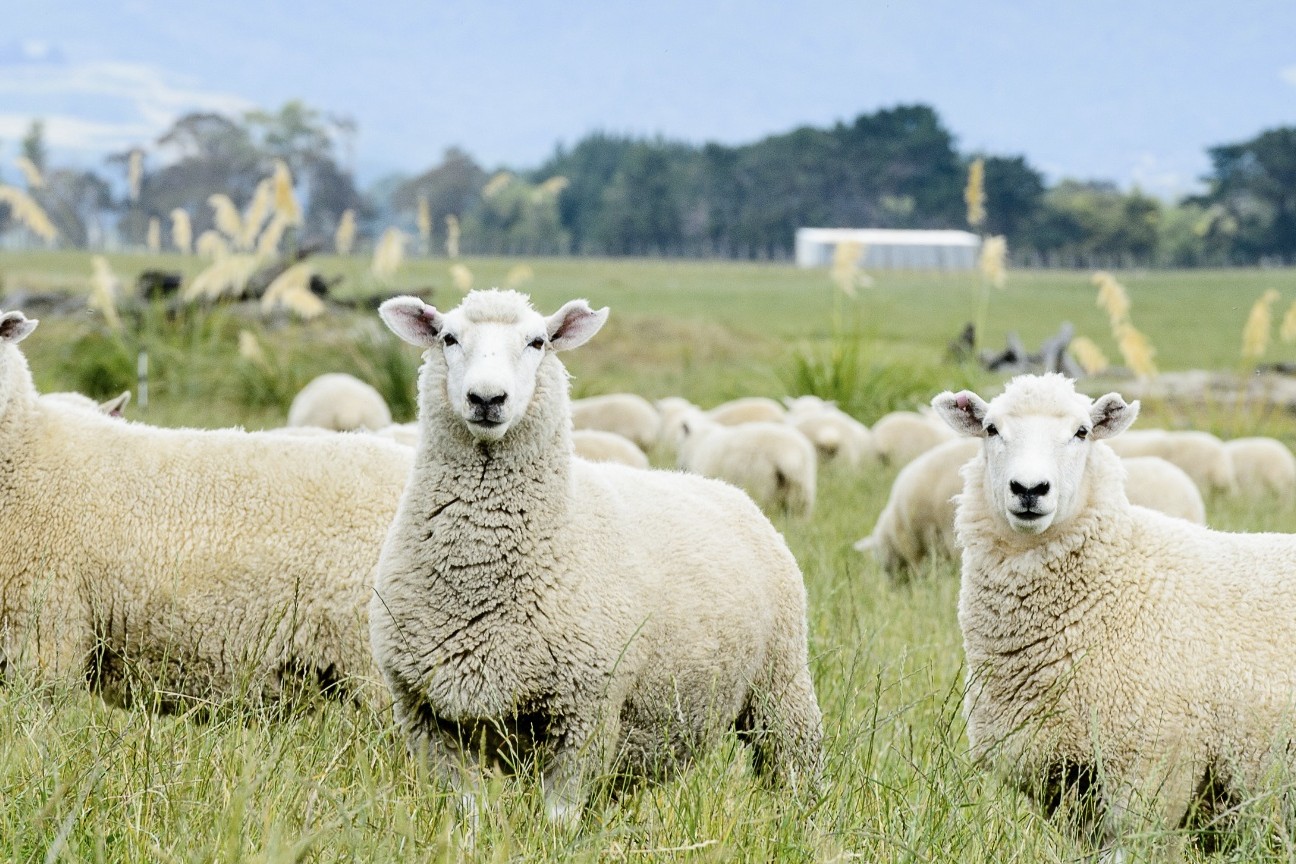Push-back against drench resistance
Using a targeted genetic line that balances production and worm resistance, WormFEC Gold ram breeders have been working to reduce New Zealand farmers’ reliance on chemical drench – one generation at a time. Words Sarah Perriam-Lampp.

Triple drench resistance in worms is now not uncommon and although ‘new actives’ are available they are much more expensive and will only have a limited life before resistance gets to them as well. WormFEC Gold breeders have been working for years on worm-resistant sheep as a major tool alongside management changes.
Mike Cranstone had one of the third of New Zealand sheep farms with triple drench resistance, which knocked his confidence.
A fourth-generation farmer, Mike is farming with his wife Cath at Fordell near Whanganui and understands the importance of genetic progress with his Riverton Ezicalve Hereford Stud. However it wasn’t until he found himself in a corner with triple drench resistance, seven years ago, that he realised his ewe flock’s genetic foundation wasn’t as solid as it needed to be.
Mike says he hadn’t used capsules for a long time and had become quite reliant on drenches having to ‘top up’ tail-end ewes and regularly drench lambs.
“I was so impressed with the huge cost the ram breeder goes to, to measure and monitor.” – Mike Cranstone, Whanganui
“I’d known that ram breeders had been working on breeding for worm-resistant sheep genetics but hadn’t prioritised it as a trait, as I was so focused on production,” explains Mike. “To be honest I was a bit nervous about the setback in the transition. But then I had no choice but to deal with the problem.”
Mark Anderson, a seasoned farm vet in Northland with a master’s in parasitology, says it’s a common concern in the battle against parasitic worms that genetic selection for worm resistance may compromise other performance traits.
As Mark explains, they go hand in hand. “As the worms arrive, it’s mounting an immune challenge against the sheep which is going to cost them in energy that they are then not using to grow meat, grow wool, raise a lamb, etcetera.
“Part of the problem with talking about resistance in sheep is everybody gets the resistance a bit the wrong way around,” says Mark. “The worms become resistant to the effects of drenching. But the sheep can become resistant to the presence of the worms.”
WormFEC Gold members have created New Zealand’s leading certification for worm-resistant sheep genetics.
WormFEC Gold members say that flocks with high worm resistance are better for your bottom line, with their flocks delivering an average of $6 in New Zealand Maternal Worth score (NZMW – a combined index for maternal sheep including Growth, Survival, Adult Size and Fertility) over the national average for Dual Purpose flocks.
The WormFEC Gold flocks achieve +$2.80 (280 cents) above the national average for DPF score (Dual Purpose Fec – an index valuing tolerance to internal parasites) and +$1.60 (160 cents) above parasite-resistant breeding competitors.
On a mission to build up a more robust ewe flock, Mike Cranstone knew that a combination of both management and genetic changes was going to be key to turn his situation around.
“We needed to feed our sheep better so we planted more feed crops to achieve higher growth rates, taking the worm burden off the pastures.”
They also focused their attention on integrating cattle into their system, weaning their stud Hereford bulls onto the sheep country in autumn.
Mike is happy to pay more for his rams when he sees the potential production sacrificed by the ram breeder in order to identify the most resistant ram lambs. The entire lamb crop is monitored under immense worm burden, the breeder states that the data from the poor performers is just as important as the best.
But the long-term benefit of faster genetic gain comes with a financial cost of lower carcase weights of the lambs not sold for breeding.
“When I started learning more about the work that went into building resistant rams to worms I was so impressed with the huge cost the ram breeder goes to, to measure and monitor.”
“I enjoy having my confidence back knowing that I have more resilient sheep that can better handle a worm burden now,” says Mike. “It may have cost a little up front in the short term, but relying on drench was a crutch, and a growing risk to farming for the long term.”
“It’s a bit like compound interest. It’s a long project with incremental gains but one that could ultimately keep you farming sheep profitably.” – Mark Anderson, VetsNorth
He explains that crossing WormFEC Gold rams now doesn’t have to cost you in loss of production because you can buy rams that have got better resistance and better production. The genetic gain of ram breeders has been impressive, and he points out that farmers are only selecting a portion of replacements each year.
As a vet, Mark says it’s important to remember that using one ‘resistant’ ram will not suddenly mean you don’t have to drench the lambs.
“It’s a bit like compound interest,” he explains. “It’s a long project with incremental gains but one that could ultimately keep you farming sheep profitably.”




